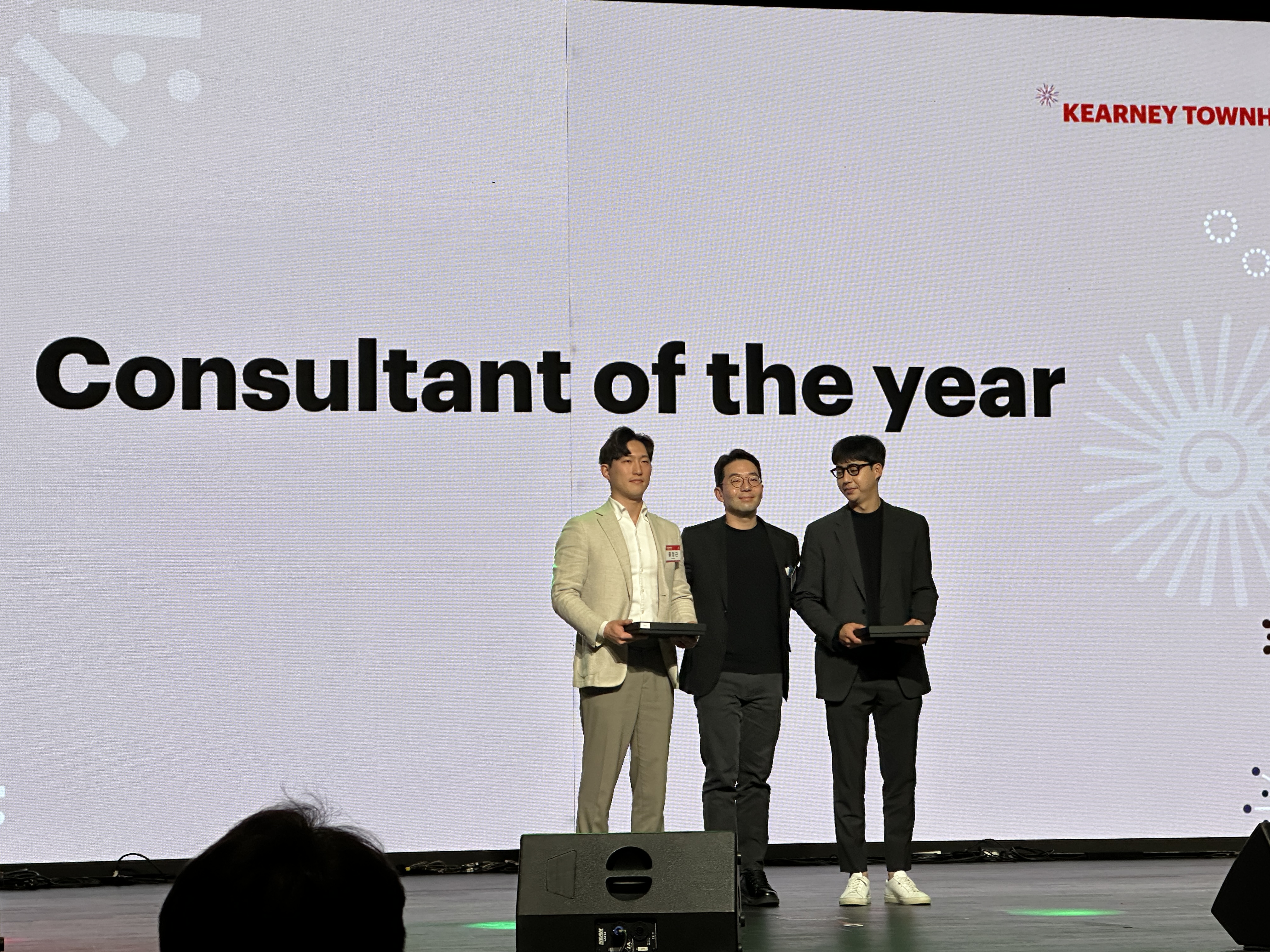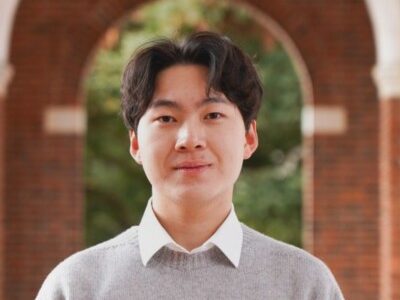
“MBA is for people who can’t build.”
That’s what many Silicon Valley founders told Jungkeun Hong — the co-founder of Plato, a tech that solves salespeople’s manual work after their sales — when he began his Master of Business Administration (MBA) at the University of California, Berkeley.
Many have taken it as an insult. Hong chose to see it as fuel. Coming from South Korea, the MBA was one of the few inroads for those seeking a place in the US startup world.
“I believed that both the Bay Area culture and the Berkeley MBA would be very valuable for my entrepreneurial journey,” Hong says.

Before doing the MBA programme in the US, Hong had great ideas but no execution ability in the US market. But now, he’s building with confidence, connections, and context. Source: Jungkeun Hong
He quit McKinsey at his peak for a bigger dream
After earning his Bachelor of Business Administration at Sogang University in 2018, Hong worked at Seoul’s leading consulting firms, earned Consultant of the Year at Kearney, and later joined McKinsey.
But his success also pushed him to reflect. AI use was growing, calling the entrepreneur in him.
“If I truly wanted to build a startup, I needed to take the leap,” he says.
Hong’s parents ran a jewellery manufacturing business, while his uncle was a tech entrepreneur himself. Growing up, Hong saw the highs and lows of their work.
He saw growth, creativity, and possibility in what his parents did. And, unlike many of his friends’ parents, they enjoyed their careers.

After being recognised as Consultant of the Year and performing well at Kearney, Hong left consulting at the dawn of the AI era to pursue entrepreneurship. Source: Jungkeun Hong
His uncle had his own eureka moment — one that Hong saw first-hand.
During the Korean financial crisis, his uncle was laid off and stayed at Hong’s house. Watching his parents manage jewellery inventory manually, his uncle spotted an opportunity to improve the process. That idea later grew into his own business, one that focused on software solutions for the jewellery industry.
“That moment made me think: wow, entrepreneurship is powerful — and when combined with technology, it can truly change lives for the better,” he says. “That’s why I was drawn to tech entrepreneurship.”
Specifically, launching a successful technology in the US. He believed that to start a global business in the US, he needed to understand American culture and build a strong network

Balancing UC Berkeley’s MBA and co-founding a startup is challenging, but Hong (third from left) manages it by setting weekly goals and strict time limits for both academics and entrepreneurship. Source: Jungkeun Hong
Why a McKinsey Korea consultant left for the Bay Area
His decision to pursue the MBA came down to two goals. First, he wanted to start his own company in the US, but he knew he needed community, cultural understanding, and firsthand knowledge of how Silicon Valley operated. He needed to know how American businesses truly functioned beyond the classroom.
The second reason was location. Berkeley sits in the heart of the Bay Area, giving students direct access to founders, investors, and a thriving startup culture. Then there’s the alumni network, enviable with names like John Hanke (creator of Google Earth, Pokémon Go) and Greg Greeley (President of Homes, Airbnb).
When Hong joined the MBA, it wasn’t long before the programme started opening doors that most cold emails could never unlock.
In the Bay Area, he was surrounded by successful founders and venture partners who genuinely want to share their experiences. Instead of chasing ignored inboxes, Hong found himself in classrooms and events where people from Tesla, Apple, and even the founder of Perplexity came to speak.
“One moment I remember clearly is when a venture partner came to school, and he gave me his personal email,” he says.
“I reached out to him, and he became my mentor. He gave me so many insights and pushed my idea further, telling me, ‘Hey, you need to think about this, this, and this.’ That really helped me set the right direction for my AI startup. Because in the Bay Area, there are so many startups that it’s very easy to lose your way, but he gave me guidance and clarity.”
That lesson stayed with him as he co-founded Plato, his current venture. The startup focuses on solving a common challenge faced by salespeople: the manual work that follows client meetings. “Many people think that salespeople only meet clients and sell products,” he says. “But there’s actually so much work for them after the sale. They need to organise what the customer wanted, handle paperwork like building invoices, and also prepare proposals.”
Research showed Hong that out of a 40-hour workweek, salespeople spend only 10 hours with clients, while another 10 are lost to repetitive tasks.
Plato was built to change that. Together with his co-founder, who had run a similar business in Korea, Hong designed AI tools that non-technical users could easily adopt. Their shared vision was clear: to democratise AI and help sales teams unlock productivity without needing coding skills.

Hong believes the MBA allowed him to go out and ask people for advice and mentorship about his startup, and that made all the difference. Source: Jungkeun Hong
Career- and life-changing skills you get from a Berkeley MBA
While his consulting friends were buried in 80-hour work weeks, Hong used his MBA time to master new skills. One of the most important was “vibe coding,” a term coined by Andrej Karpathy, the former Head of AI at Tesla. The idea is simple: instead of learning traditional programming, you use natural language to instruct AI to build what you want.
Before, Hong couldn’t even make a landing page. After, he was able to design prototypes and websites in just a few hours.
That ability changed how he worked with customers. Suddenly, he could demo products quickly and show precisely how his vision matched their needs. It also transformed his relationships with technical co-founders.
“In the Bay Area, there’s this idea that if you don’t know programming, engineers tend to ignore you or not respect you as much,” he says. “But after I learned ‘vibe coding’ — and even some basic coding too — the response from engineers changed a lot. Before, they didn’t take me seriously. After, they started asking, “Oh, did you use this tool? Did you use that process?” and we could actually have meaningful conversations.”
Beyond skills, the MBA also changed Hong’s perspective on community. He remembers failing his first startup and choosing isolation. Instead of seeking help, he stayed in his room, frustrated and unwilling to talk to anyone. Looking back, he admits he would do it differently.
“If I could go back to that time, I would definitely reach out for support — from other founders at Berkeley, from investors, and from professors,” he says. “The culture in Silicon Valley is very ‘pay it forward,’ so people are really willing to help you if you ask. However, if you stay alone, nobody will offer you any help. That’s one important lesson I remember.”











